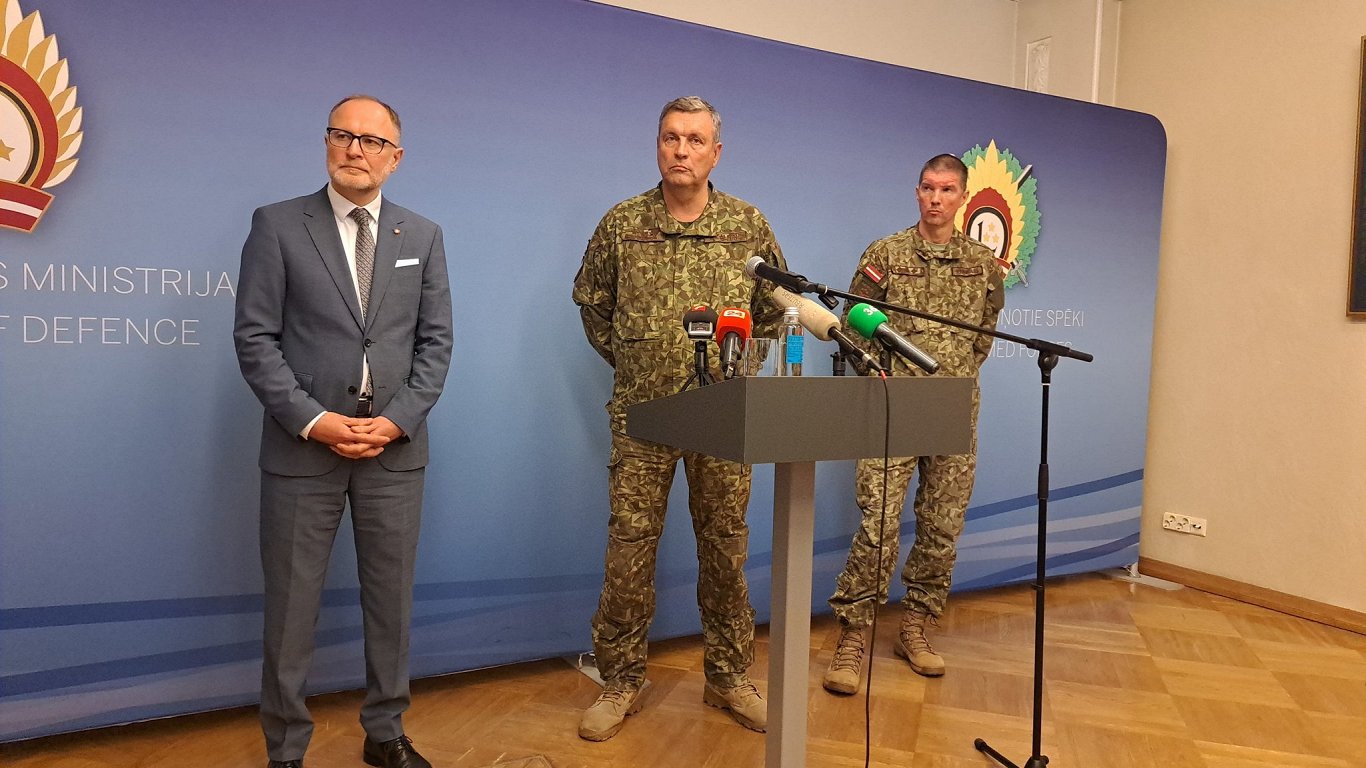Lieutenant-General Leonīds Kalniņš, Commander of the NBS, said that the drone was not specifically targeting Latvia, but Ukraine.
Kalniņš said that the drone fell in the Gaigalava parish of Rēzekne municipality. "Shahed" type drones – designed by Iran – are widely used against Ukraine by Russia. All physical evidence at the site of the crash has now been collected and an in-depth analysis of the drone's components is underway.
Colonel Viesturs Masulis, Commander of the NBS Air Force, said that the drone was equipped with an explosive device, which was destroyed on the ground after the drone crashed.
Kalniņš said that after analyzing and monitoring the situation, it was concluded that the drone was not specifically targeted at Latvia. At the same time, Defense Minister Andris Sprūds (Progressives) confirmed that the drone could be considered to have targeted Ukraine.
The Minister repeatedly stressed that the debate on whether or not the drone was maliciously targeting Latvia was secondary, the primary issue being that Latvian airspace was violated by a drone of an aggressor state, and this is how the situation is being assessed.
Masulis added that it was now necessary to investigate why the drone had strayed and drifted freely towards Latvia.
Kalniņš confirmed that it was a military drone with a warhead that did not explode and was subsequently neutralized on the ground by an NBS unit. The NBS investigation is still clarifying whether the drone landed by itself or crashed.
Kalniņš pointed out that the NBS had been monitoring the situation with the drone "from the beginning when it was already seen in the neighboring country".
To make a decision to destroy a drone, you have to be absolutely sure that it is not a civilian object, such as a hang glider or a small plane that has forgotten to turn on its recognition equipment. After weighing all the factors, the NBS acted in accordance with the decision it made, Kalnins said, without elaborating further on what exactly it was. The likely implication is that a decision was made not to shoot it down.
He also said that the NBS "does not shoot right and left at the border" to shoot down any suspicious objects, as there have been cases in the past when Belarusian drones have accidentally flown into Latvian territory.
Asked whether such incidents could happen again, Kalniņš replied with a counter-question, "Is the war in Ukraine over?" As long as the war continues, there is no guarantee that something like this will not happen again, Kalniņš said.




























